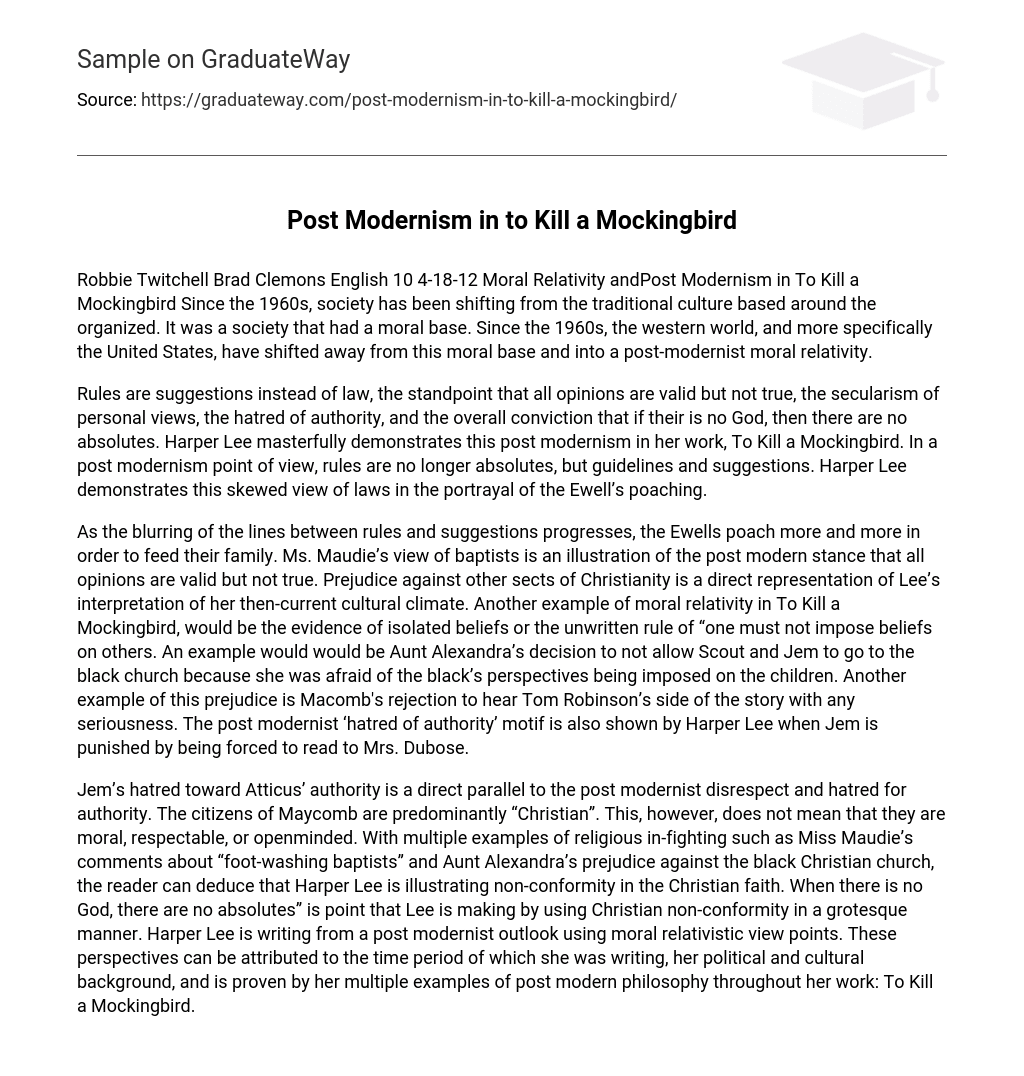Since the 1960s, society has been shifting from the traditional culture based around the organized. It was a society that had a moral base. Since the 1960s, the western world, and more specifically the United States, have shifted away from this moral base and into a post-modernist moral relativity.
Rules are suggestions instead of law, the standpoint that all opinions are valid but not true, the secularism of personal views, the hatred of authority, and the overall conviction that if their is no God, then there are no absolutes. Harper Lee masterfully demonstrates this post modernism in her work, To Kill a Mockingbird. In a post modernism point of view, rules are no longer absolutes, but guidelines and suggestions. Harper Lee demonstrates this skewed view of laws in the portrayal of the Ewell’s poaching.
As the blurring of the lines between rules and suggestions progresses, the Ewells poach more and more in order to feed their family. Ms. Maudie’s view of baptists is an illustration of the post modern stance that all opinions are valid but not true. Prejudice against other sects of Christianity is a direct representation of Lee’s interpretation of her then-current cultural climate. Another example of moral relativity in To Kill a Mockingbird, would be the evidence of isolated beliefs or the unwritten rule of “one must not impose beliefs on others.
An example would would be Aunt Alexandra’s decision to not allow Scout and Jem to go to the black church because she was afraid of the black’s perspectives being imposed on the children. Another example of this prejudice is Macomb’s rejection to hear Tom Robinson’s side of the story with any seriousness. The post modernist ‘hatred of authority’ motif is also shown by Harper Lee when Jem is punished by being forced to read to Mrs. Dubose.
Jem’s hatred toward Atticus’ authority is a direct parallel to the post modernist disrespect and hatred for authority. The citizens of Maycomb are predominantly “Christian”. This, however, does not mean that they are moral, respectable, or openminded. With multiple examples of religious in-fighting such as Miss Maudie’s comments about “foot-washing baptists” and Aunt Alexandra’s prejudice against the black Christian church, the reader can deduce that Harper Lee is illustrating non-conformity in the Christian faith. When there is no God, there are no absolutes” is point that Lee is making by using Christian non-conformity in a grotesque manner.
Harper Lee is writing from a post modernist outlook using moral relativistic view points. These perspectives can be attributed to the time period of which she was writing, her political and cultural background, and is proven by her multiple examples of post modern philosophy throughout her work: To Kill a Mockingbird.





